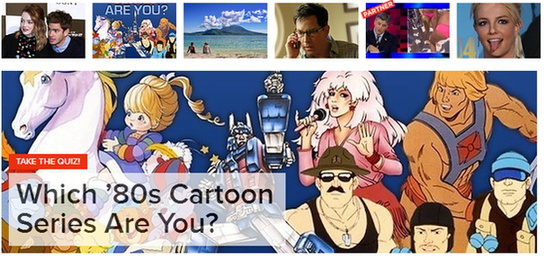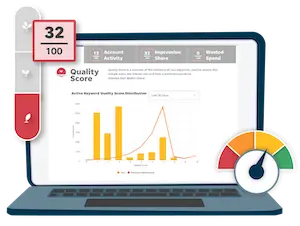In his latest Webmaster video, Matt Cutts answers the question: “How does Google separate popularity from authority?” (This question came from a “Blind Five Year Old,” by the way! That’s our friend AJ Kohn unless someone stole his alias.)
It’s an interesting question, but I’m particularly interested in an offhand comment that Cutts makes at the beginning of the video. To distinguish between popular sites and authoritative sites, he uses the examples of pornography and government websites. Porn sites are more popular than government sites, he says, but government sites are more authoritative:
If you were to look at sites that are popular – for example porn sites are very popular – but people tend not to link to porn sites. On the other hand if you take something like the Wisconsin real estate board, probably not a ton of people go there, but quite a few people do link to government websites. And so popularity is in some sense a measure of where people go, whereas PageRank is much more a measure of reputation; it’s much more a measure of where people link.
This is fascinating to me because of the admission he isn’t focusing on – there are verticals (if we can call porn a vertical) where links are not important. This is probably why, as Cutts said in a recent Webmaster video, Google has tried ranking sites without consulting the link graph.
So the question becomes, if people don’t link to porn, how does Google rank porn sites? People certainly use Google to search for porn (protip: turn “safe search” off), and they must have some method of ranking those sites. And in a space like porn, “simple popularity” would trump authority.
Do People Even Want Authority?
The thing is, I don’t think porn is the only exception to the “authority” rule. I’d argue that there are a number of spaces where popularity should far outweigh links. Take restaurants for example. As a diner, I don’t really care which restaurants have the most press, I care which restaurants serve the best food. There might be better ways of measuring the signals of true popularity for a restaurant (social buzz, brand searches, mobile check-ins, etc.) than links. These are the kinds of signals that would figure into a Quality Score–type algorithm for organic rankings, versus standard-issue, link-based PageRank.
But restaurants are just one example. I think Google – at least in PR like Webmaster videos – is overselling the importance of authority to users. Assuming that people want authoritative content is kind of like assuming they want vegetables and whole grains, when in fact they’d rather have junk food most of the time. In other words, people want porn.
They want the porn equivalent of journalism (quizzes and listicles from BuzzFeed, for example) just as much, if not more, as they want the New York Times. And when they’re looking for general information, they often want Wikipedia.
We know Google knows people want Wikipedia for two reasons:
- Wikipedia ranks on the first page for HALF of Google searches (remember most search queries are informational in nature)
- Google “scrapes” Wikipedia all the time for its Knowledge Graph, so users don’t even have to click through to get fast “facts”
But the truth is, Wikipedia isn’t really “authoritative,” it’s just popular. The content on Wikipedia is biased and always in flux. At any given time, any “fact” you find on Wikipedia could be utter bullshit. Plus, most of it is scraped, AKA copied and pasted, and “stitched” from other sites, something Cutts has told us content creators is a no-no. Still, it’s what people want (simple, familiar, to the point), so Google gives it to them. Of course, Wikipedia also happens to have a killer link profile, but this is somewhat circular – people keep clicking and linking because it’s always one of the first five results.
Closing Thoughts
- Google is forced to rethink rankings in verticals where links aren’t the going currency. I think it’s inevitable that Google looks to ranking signals outside the link in other query spaces. However Google ranks porn is the future of search.
- When it comes to content, “quality” is defined by the people. Unless you’re a government website (in which case you probably don’t need to worry about SEO), define quality by what makes your users happy. If they are clicking, reading, sharing, and coming back, those are the quality signals you need, whether or not they’re linking. Be addictive. Be like junk food to your audience.










Comments
Please read our Comment Policy before commenting.